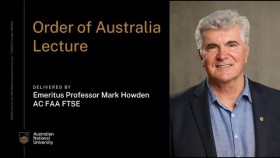ANU experts comment on National Energy Guarantee
The Australian National University (ANU) energy and economics experts are available to comment on the developments relating to the National Energy Guarantee (NEG). A selection of their views is available below.
Professor Ken Baldwin
Director, ANU Energy Change Institute and ANU Public Policy Fellow
"How can the NEG walk the COAG political minefield without being compromised as an effective decarbonisation measure? First, the mechanism itself needs to be de-coupled from the ambition i.e. the politically charged emissions reduction target needs to be set not in legislation, but by regulation so that it can easily be used as a knob to tune the level of ambition. Second, the states need to be able to set their own targets, but they need to agree to comply with the minimum 26 per cent target to avoid free-riding on the back of higher targets set by other states."
Professor Frank Jotzo
ANU Crawford School of Public Policy
"The NEG merely scratches the surface in the transition that is ahead for Australia's energy sector. As it stands, the NEG is more a political instrument than an effective policy mechanism. The reliability component is narrowly defined and unlikely to kick in; the emissions component will be ineffective unless the target is strengthened. If the NEG gets the nod, then the pious hope is that it will provide a little island of bipartisanship in the climate wars, to build on later. The fear is that it will lock in an inferior mechanism with inadequate ambition. Either way, it will be anything but the last word on electricity policy. Big issues remain unaddressed, from orderly exit for coal fired power stations, to reform of the power sector for more competition and decentralization, and better ways of deciding public investment in network infrastructure and energy storage."
Dr Lachlan Blackhall
Entrepreneurial Fellow and Head, Battery Storage and Grid Integration Program
"For the NEG to provide policy certainty it needs to be good policy. This means providing a mechanism that supports states or future governments with more ambitious emissions reduction targets. Good policy also means the NEG needs to create a level playing field for all generation assets to deliver energy reliability. In particular the NEG shouldn't attempt to lock in an extended lifetime for coal fired power plants when renewables and energy storage can do it cheaper and more flexibly. Ultimately, it's time to achieve policy certainty so we can get on with the important business of addressing energy affordability and equity for our community."
Dr Matthew Stocks
Research Fellow, Research School of Engineering
"Technology neutrality is okay but carbon neutrality is not. Any policy for carbon emissions reduction must recognise that electricity is the easiest and cheapest sector to achieve significant reductions. Low emissions electricity is the catalyst for future reductions in other sectors, such as the electrification of transport and the displacement of gas for low temperature heat. The scale of reductions required across the Australian economy points to the need for policy that encourages electricity to do more than its 'fair share'."











